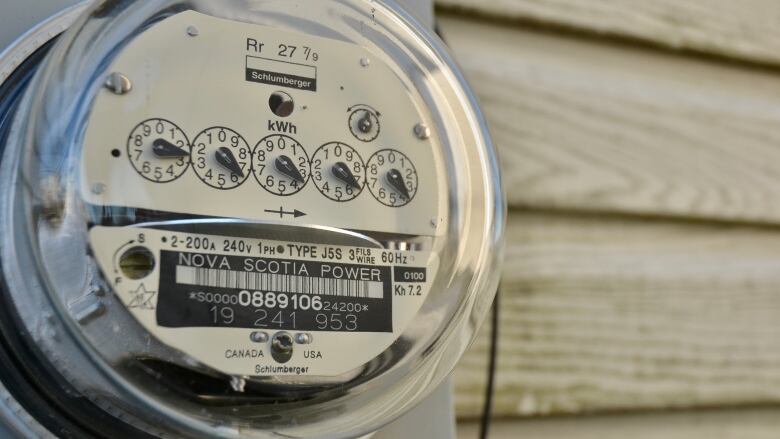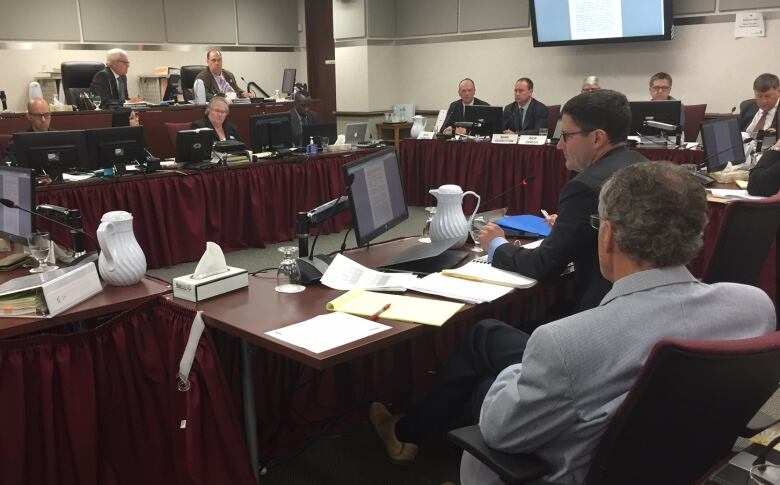Small break offered by NSP over Maritime Link not enough, says consumer advocate
Delays seeing electricity flow through Maritime Link project discussed at public hearing

A proposal by Emera Inc. to give Nova Scotia Power customers a small break on their bills to compensate for delays bringing hydroelectricity through the Maritime Link does not go far enough, according to the province's residential consumer advocate.
Emera subsidiaryNova Scotia Power Maritime Link Inc. (NSPML) said it is willing to defer collecting depreciation costs from Nova Scotia Power ratepayers in 2018 and 2019 so the savings can be returned to customers in annual credits.
Consumer advocate Bill Mahody doesn't buy it. He said the proposal still leaves ratepayers paying Emera a nineper cent rate of return for its investment in the $1.5-billion Maritime Link, even though it will be slow to deliver the hydroelectricity for which it was built.
The transmission line is being laid across the Cabot Strait, however it won't bringhydroelectricity from Muskrat Falls until 2020 because of delays with that project in Labrador.
"The issue comes down to what is the company willing to do to share the burden that's represented by this construction delay and so far they are not willing to do anything," Mahody told CBC News as the Nova Scotia Utility and Review Board opened public hearings on Maritime Link financing in Halifax.
"There is no commensuratereduction in the return the company intends to make. They want everything from the rate and they are unwilling to give anything in relation to it."
Small break on power bills
NSPMLhas proposed to defer recovery of $51 million per year in depreciation costs in 2018 and 2019. The company said Nova Scotia Power would pass that saving onto customers in the form of a one-time credit on bills in March/April of 2018 and 2019.
Nova Scotia Power president Karen Hutt was on hand for the utility and review board hearing, but was not made available to talk to reporters.

A company vice-president, Sasha Irving, estimated credits would average between $15 to $60 on the bills of residential customers in the spring of 2018 and 2019, depending on their energy usage.
The company would start to collect depreciation costs in 2020.
Criticism of charges to customers
Nova Scotia Power Maritime Link said it was offering the depreciation deferral in response to criticism that ratepayers were being unfairly charged the full cost of the Maritime Link project before it delivers electricity from Muskrat Falls.
"We have heard through the evidence the concerns that were raised," NSPML president Rick Janega said Monday.
"We believe this is a proposal that will address that concern."
If its depreciation deferral is approved, NSPML is seeking $111 million from ratepayers in 2018 and $113 million in 2019.
Regulators have already approved Maritime Link costs in rates for 2018 and 2019. NSPML said it cannot pass on its depreciation deferral in lower rates because of a rate-freeze law passed by the McNeil government.
The company has built a nine per cent rate of return for Emera into what it recovers from Nova Scotia Power customers.
$1-billion profit
Under questioning from Mahody, NSPML officials admitted that Emera stands to make $1 billion in rate of return over the life of the Maritime Link.
NSPML has rejected claims that its shareholder Emera should lower its return on equity for the two years before the link delivers its Muskrat Falls electricity. NSPML has suggested lowering the rate of return could hurt the company in financial markets.
"It's most important for us to get the most attractive rates for our customers," said Nova Scotia Power chief operating officer Mark Sidebottom.












_(720p).jpg)


 OFFICIAL HD MUSIC VIDEO.jpg)
.jpg)



























































































